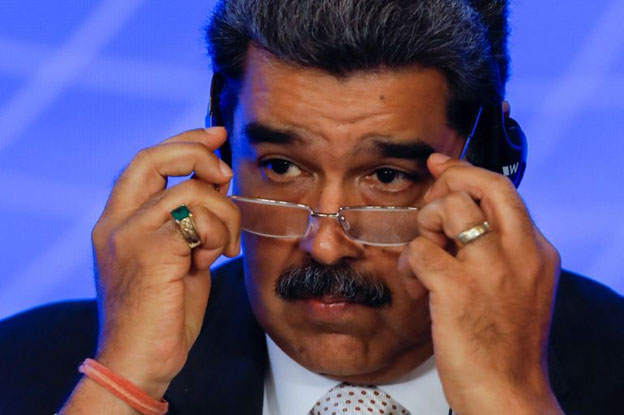A Reuters report earlier this week has alluded to what it described as “insufficient inventories” and “a lack of imported diluents” at Venezuela’s main oil port, Jose, which, it says, continues to place restraints on the ability of the country’s state-run oil company, PDVSA, to further accelerate exports to fulfill spot supply deals. This information, the Reuters report says, emanates from “internal company documents.” Contextually, the report says that, in recent days, a number of large tankers have had to leave Jose empty, on account of what it says has been a lack of imported diluents used in the country to ‘treat’ oil prior to exports.
All of this is connected to the ongoing circumstance in which the United States is engaged in policies designed to pressure the administration of the country’s President Nicolas Maduro to alter a political stance which Washington contends inhibits democracy in the country. Citing what it says has been “vessel monitoring data” the Reuters report asserts that in recent days “some large tankers bound for Asia have left Venezuela without loading” after having waited “for weeks” to secure oil.
 The situation, according to the report, has not been helped by the fact that the country’s Jose Terminal has been affected by inefficiencies resulting from “power outages and slow oil blending that affected loadings in January” though it added that an improvement in the situation “could lead to higher exports in March.” Specifically, the report asserts that “as of Feb. 29,” at least 18 supertankers were waiting to load near Venezuela’s Jose and Amuay ports,’ which reportedly handle most of PDVSA’s exports, up from about a dozen at the end of November last year. The report asserts that Venezuela’s imports had risen to 144,000 barrels per day, up from 122,000 bpd in January.
The situation, according to the report, has not been helped by the fact that the country’s Jose Terminal has been affected by inefficiencies resulting from “power outages and slow oil blending that affected loadings in January” though it added that an improvement in the situation “could lead to higher exports in March.” Specifically, the report asserts that “as of Feb. 29,” at least 18 supertankers were waiting to load near Venezuela’s Jose and Amuay ports,’ which reportedly handle most of PDVSA’s exports, up from about a dozen at the end of November last year. The report asserts that Venezuela’s imports had risen to 144,000 barrels per day, up from 122,000 bpd in January.
More recently, a separate March 5 Reuters report alluded to “a possible re-imposition of US sanctions” next month which, it says, would stagnate the country’s crude output, “wiping out the small gains it has achieved in recent years.” The Reuters report has also hinted at what it says is Washington’s position that it will “allow the expiry of a temporary license it granted last year to Venezuela as part of negotiations for a fair presidential election if the government does not allow an internationally observed election with participation of a candidate chosen by the opposition.”
United States oil sanctions targeting Venezuela are now in their fifth year, though, back in October last year, Washington had relaxed aspects of the sanctions, allowing for PDVSA to resume Venezuela’s crude oil exports to some of its long-term customers and boost the country’s oil output, reportedly, to 783,000 barrels per day (bpd) last year, compared with 569,000 bpd in 2020.






